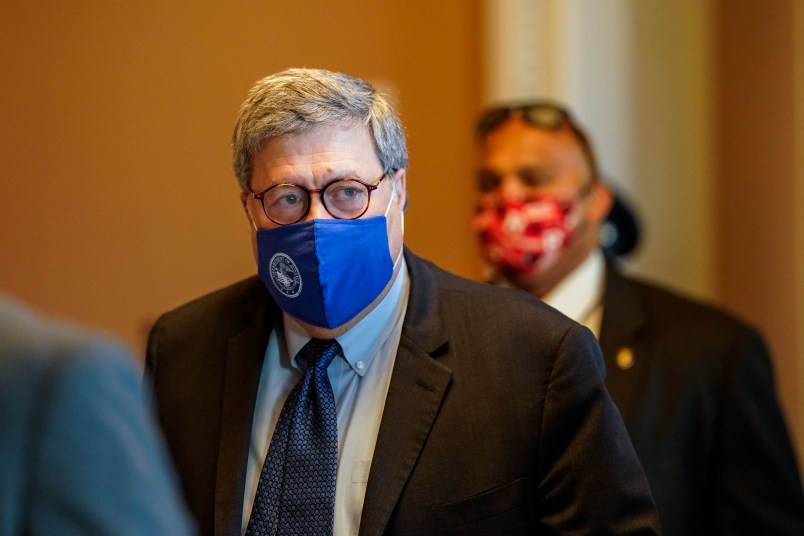Sixteen federal prosecutors tasked with monitoring the 2020 elections told Attorney General Bill Barr that his policy allowing them to look into “vote tabulation irregularities” before results are certified was blatantly political and not based in facts.
In a letter to Barr on Friday reported by The Washington Post, the group of U.S. attorneys that served as district election officers said Barr’s policy change “thrusts career prosecutors into partisan politics” and “was not based in fact.”
In their districts, the prosecutors wrote, there was no evidence of the type of election fraud Barr’s memo had specified.
Barr’s policy, which came after media organizations projected that Joe Biden was the president-elect, gave the feds permission to investigate “clear and apparently-credible allegations of irregularities” if they could impact the outcome of a federal election.
The policy violated long-standing DOJ policy, drew criticism from former DOJ officials, and led to the director of the election crimes branch of the DOJ public integrity section resigning from that role.
“Perhaps they did not read the memo,” a DOJ spokesperson, Kerri Kupec, told the Post, referring to the letter’s signatories. She pointed to a section of Barr’s memo that specified, “Nothing here should be taken as any indication that the Department has concluded that voting irregularities have impacted the outcome of any election.”
Still, the policy rollout itself has been interpreted as a political move meant to support President Donald Trump; typically, such investigations aren’t pursued before the certification of election results.
“We disagree with the Memorandum’s argument that the impact of taking overt investigative and prosecutorial actions on the outcome of an election is greatly minimized after voting ends but before certification occurs,” the 16 assistant U.S. attorneys wrote, according to the Post.
Per the post, the letter’s signatories were from the following federal districts:
Western Pennsylvania, Western North Carolina, New Mexico, Maryland, Southern Ohio, Eastern Kentucky, Southern Iowa, Western Arkansas, Southern New York, Eastern New York, Oregon, Kansas, Northern California, the Virgin Islands and the Northern Marianna Islands. Two signers were from Oregon.



